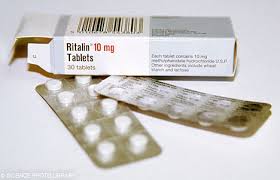When to Consider Cocaine Inpatient Detox Treatment – 3 Warning Signs
After abusing cocaine for weeks or months at a time, it’s all but impossible to stop using on your own. Once drug use continues beyond a certain point, cocaine withdrawal effects start to play an active role in keeping you hooked.
If you’re prone to experiencing severe withdrawal symptoms, there’s an even greater need for professional treatment. Cocaine inpatient detox programs specialize in helping a person make it through the withdrawal stage and breaking the body’s dependence on the drug.
Knowing the warning signs to watch for can help you determine whether inpatient detox is right for you.
Please feel free to call our toll-free helpline at 800-605-6597 Who Answers? to ask about cocaine addiction treatment options.
What Causes Cocaine Withdrawal?
According to the journal of Addiction Medicine, cocaine withdrawal develops out of the damage done to the brain’s neurotransmitter system. When ingested, cocaine forces dopamine-producing brain cells to secrete incredibly large amounts of the chemical.
Over time, these interactions leave cells unable to function normally. Since dopamine secretions regulate a good majority of the body’s major systems, growing imbalances leave the brain unable to regulate the body as it normally would. The result is cocaine withdrawal.
Inpatient cocaine detox works to relieve the discomfort that comes with severe withdrawal symptoms.
3 Signs Cocaine Inpatient Detox Treatment is Needed
1. Loss of Control Over Drug Use

A rapidly growing cocaine tolerance requires inpatient detox treatment.
Cocaine’s damaging effects not only disrupt the brain’s chemical system, but also weakens affected cells in the process. As this happens, cells become less sensitive to the drug’s effects.
This loss of sensitivity means you have to take larger and larger amounts of the drug in order to experience a “high.” In effect, the brain develops a tolerance to cocaine at a rapid pace, which ultimately works to make cocaine withdrawal effects more severe.
2. Severe Withdrawal Symptoms
As long-term cocaine abuse naturally breeds severe withdrawal effects, someone coming off chronic and/or long-term drug use can expect to experience the very worst of what cocaine withdrawal has to offer.
According to the University of Arizona, symptom severity can even become life-threatening as cocaine’s effects disrupt heart functioning and blood circulation rates. These conditions increase the risk for stroke and heart attack.
Detox programs provide needed medical care throughout the detox stage.
3. Emotional Instability
Cocaine withdrawal wreaks havoc on your emotional well-being, producing frequent mood swings, feelings of rage as well as deep-set depression states, especially in cases of long-term drug use. These conditions not only endanger the addict and others around him or her, but also diminishes a person’s ability to follow-through on abstaining from further drug use.
The 24-hour monitoring and emotional support provided through cocaine inpatient detox programs is very much needed under these conditions.
Treatment Considerations
For many struggling with cocaine abuse, fear of withdrawal becomes the biggest obstacle to breaking free from addiction. This means getting the level of treatment needed to get you through the detox stage is essential to gaining a foothold in recovery.
If you’re considering cocaine detox and need help finding a program that meets your treatment needs, call our helpline at 800-605-6597 Who Answers? to discuss treatment options with one of our addiction counselors.



